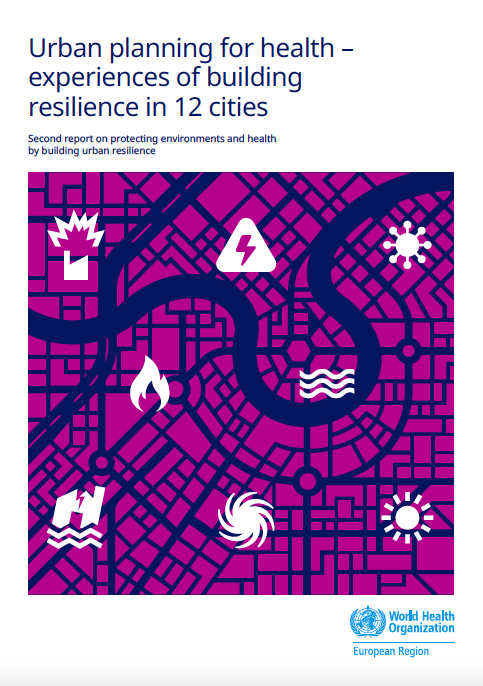Urban planning, risk governance and resilience have become increasingly important pathways to promote and protect public health at the local level. Climate change, inadequately planned urbanization and environmental degradation have left many cities vulnerable to disasters. The COVID-19 pandemic has further highlighted the links between health and urban environments, and the relevance of sustainable and resilient planning.
Various global frameworks have been established to address sustainable development, urban environments and resilience, and awareness of the local benefits associated with implementation of these global agendas is increasing. The Protecting environments and health by building urban resilience project aims to support local authorities and decision-makers to reflect on the environment and health dimensions of local preparedness and resilience, and to promote the application of urban planning approaches to establish safe, healthy and sustainable cities. This second report of the project presents the findings of semi-structured interviews in 12 European cities on their practical experiences with environmental emergencies and disasters at the city level, and related lessons learned for resilient urban design and infrastructure planning.






